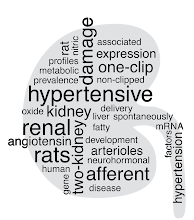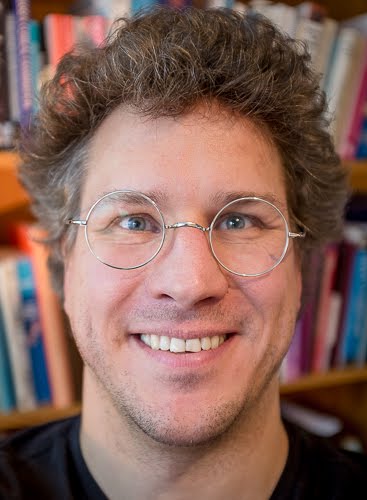The ligaments and the joint capsule are very well innervated structures. That is why it hurt so much when you rip them asunder, and, apparently, after you stitch them back together. Pain, as you know, is just weakness leaving the body, and drugs make you strong. Strong drugs makes you stronger.
It is now three weeks since I ruptured my medial collateral ligament, and anterior cruciate ligament of the left knee. The ligaments are not only well innervated, they are also well endowed with blood vessels. So, after the injury my knee promptly filled up with blood. When the blood cells die and break up they release a huge amount of proteins into the joint and this will attract even more fluid by osmosis. Three days after the injury my knee was so full it was all but immobilised, and it looked more like a melon than any part of a human being. Sadly, I did not have the wherewithal to take a picture either before or during the draining of the joint. That was the first use of strong drugs, or derivatives of strong drugs anyway.
The local anaesthetic Xylocain has the innocuous ending -cain because it is derived from Cocaine. Cocaine is a brilliant local anaesthetic, which is still used in Ear-Nose-Throat surgery, but otherwise it has been superseded by variants that do not give you as much of a high. After a little dose of Xylocain, you can take a 0.8 mm needle (or thicker if you wish) in your knee without flinching.
While the acute pain was rather intense, the following week was not worse than that I could get along with only ibuprofen and paracetamol. Then I let the surgeons at my knee. That gave me the opportunity to test another drug: Propofol. It is what Michael Jackson used to sleep on, which is like killing a mosquito with a nuclear bomb. Anyway, propofol makes you sleep like a baby. The surgeons stitched up my collateral ligament and after that the real pain started, and then it disappeared. I woke up after surgery, quite groggy. A moment later I noticed that my knee hurt, and one of the nurses asked if it hurt, I said yes and they gave me morphine.
Morphine takes the pain away. It is quite amazing, where one minute you have an intense, penetrating pain that makes it impossible to think, the next minute it is just gone. At the same time it does not affect your faculties so much, at least not at the doses I have tried. Where local anaesthetics are just inhibiting the nerve transmission at the exact site where you give it, and narcosis basically makes you sleep so that you don't experience the pain, opiates directly affect the activation of the pain nerves. And only the pain nerves (well mostly).
It binds to special morphine receptors (well they are really endorphin receptors, but I always thought it was amazing that the body had receptors for drugs. That was until I realised that it was the other way around: That drugs are things we have receptors for). These morphine receptors can be found both on peripheral nerves, in the spinal cord and in the brain. At all these levels they lessen the feeling of pain. So, the painful stimulus elicits a weaker signal in your peripheral pain nerves. Then the pain nerve enters the spinal cord through the dorsal root and synapses to another pain nerve which runs up the anterolateral system of the spinal cord to the spinothalamic tract of the brain stem and then into the brain. In the spinal cord there are descending pain moderating nerves that release endorphins and makes you less sensitive to pain when you don't have the time to bother with it. It for example you are fleeing from a crocodile, or playing judo. Morphine activates the same receptors. They are also present in the brain where the sensation of pain is actually created, here their activation increases your pain threshold.
Morphine only has two draw backs: 1: It is addictive as hell, and 2: It is excreted through the kidneys, which makes it inappropriate for patients with acute or chronic kidney disease (I have heard something about opiates and breathing, the GI-tract, nausia but I never understood exactly how it involves the kidneys). The problem with addictiveness was realised hundreds, if not thousands of years ago. It was not morphine then, it was opium. Interestingly, at the turn of the last century heroin was thought to be a milder, non-addictive version of morphine. It was used as cough-syrop and even used to treat morphine and opium addiction. To say that it was a little embarrassing for Bayer when it was shown to be a faster acting, even more addictive, version of morphine, is probably true.
The addictiveness of opiates depends on three things: 1: Tolerance, or down regulation of receptor mediated signaling due to receptor activation, 2: You get high, 3: You get abstinent.
The problem for patients with kidney disease is that morphine is usually metabolised by glucuronidation which makes it more water soluble and then it is excreted by the kidneys. Reduced kidney function increases the risk of toxicity. Luckily, my kidneys work just fine.
If you want some more reading Pubmed is good for all that boring stuff, but for your literary side I have some suggestions: Confessions of an English Opium Eater by Thomas De Quincey, available for free through the Gutenberg project. The always nice The Adventures of Sherlock Holmes by Sir Arthur Conan Doyle is a well known book with a cocaine addicted hero. I don't know of any classic literature involving NSAIDs or general anaesthesia. On the other hand pain features prominently in practically all books, it is called into action to shape and destroy characters. It is the reason they rise above their peers, and the reason they fall. The great heroes of literature (and film) overcome great pain, thus showing that all weakness has left them. Then they alone can stand up to the evil that previously was threatening the whole world.
Ok, so literature and film is not the best place to find realism, but with music and special effects it makes the days go by when your physiotherapist says you should not put too much strain the knee after surgery, even though morphine takes the pain away.
Subscribe to:
Post Comments (Atom)


No comments:
Post a Comment